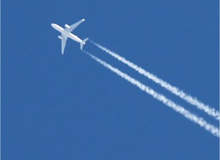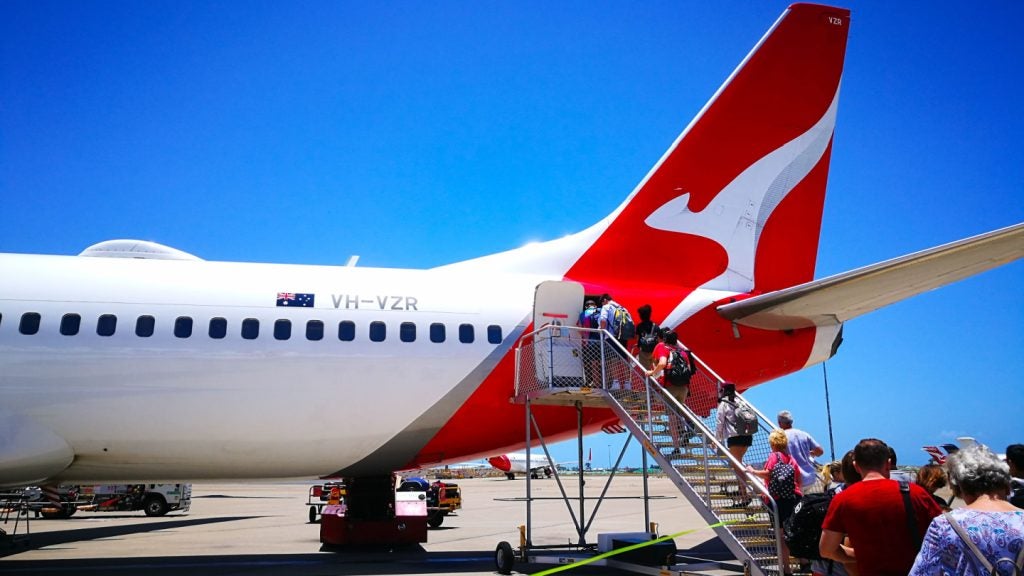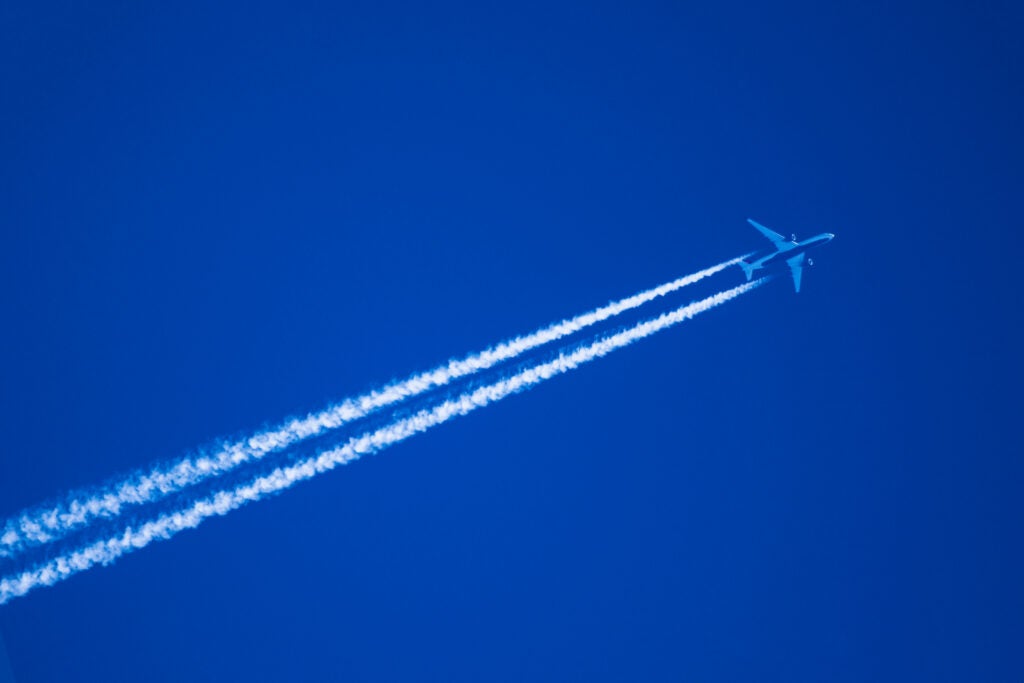
In March 2007, the EU approved the Open Skies agreement, which threatens to open up a whole new can of worms regarding operations in the sky when it comes to effect in March 2008. Flag carriers British Airways, Virgin Atlantic, American Airlines and United Airlines will have to make way for all EU airlines on the lucrative transatlantic route and prepare for greater competition in both cost and airport slots.
In some places, like the UK, Open Skies is also likely to be somewhat of a game of musical chairs, as airlines scramble to meet passengers' desire to fly to the US from select locations, such as Heathrow Airport which is already 98.5% full.
Jobs will be created, which pleases the EU, and fares are predicted to fall as the number of airline passengers goes up.
One of the largest concerns with Open Skies, however, is how the agreement will affect ownership laws.
TRULY OPEN SKIES?
See Also:
Criticism still looms over the US's stringent control over ownership rights. The Open Skies agreement only allows EU investors 25% of the voting rights or equity in a US airline, and/or 49.9% of the total non-voting equity, and vice versa. This means that EU airlines cannot buy US carriers, and domestic routes will be out of bounds, even though US carriers will be able to fly freely between European airports.
How well do you really know your competitors?
Access the most comprehensive Company Profiles on the market, powered by GlobalData. Save hours of research. Gain competitive edge.

Thank you!
Your download email will arrive shortly
Not ready to buy yet? Download a free sample
We are confident about the unique quality of our Company Profiles. However, we want you to make the most beneficial decision for your business, so we offer a free sample that you can download by submitting the below form
By GlobalDataThe EU Commission has been under pressure to come to some arrangement with the US, where unions feared job losses, lowered safety standards and security risks. As an example of how the US stance inhibits M&A in the UK, BA has a 10% stake in Spanish Iberia but it can't buy the company because a treaty between the Spanish and US governments only allow Spanish-owned planes to fly from Madrid to New York.
"The European and UK airlines are particularly disappointed that phase one has given US airlines greater access to Europe. What Virgin and BA want is to open up that internal market in the US," says Tim Johnson, director of the Aviation Environment Federation (AEF).
"BA was hoping to fly London-New York-New York-Seattle – it's that existing leg, that was really the prize," he explains. "The rest of it was an extension of an existing arrangement."
Virgin Atlantic spokesman Paul Charles agrees. He says "airlines in the EU feel it's not a level playing field. It's not truly open and it needs to be."
Virgin has, in the past, tried to establish internal flights in the US but been limited by regulation. The situation doesn't look likely to improve immediately with Open Skies – so far, the House of Representatives transport committee has been opposed to the possibility of foreign control of US airlines, and of any reforms.
"There would be a lot of competition and they (the House) are worried about the quality of the product," says Charles. "It's protectionist in a way – they want to hold off for as long as possible."
To appease worries that Open Skies could be weighted unfairly in favour of US air traffic, the UK government has inserted a clause giving it the right to suspend or scrap this first part of the agreement if the US doesn't make any moves towards an Open Aviation Area by 2010, or in other words, allowing European airlines to have majority control. This would mean the entire deal would have to be rehashed according to UK Department for Transport spokesman Warwick Smith.
"This whole agreement is dependent on the US liberalising the domestic market to all carriers," says Smith. "So we are confident that that will happen, if it doesn't then we have the stage two part of the deal, but there's no reason to think that that won't happen," says Smith.
COME FLY WITH ME
Despite the bureaucratic debate, consumers want open skies.
The decrease in fares from the UK to America alone is predicted to save UK consumers £250m a year and 80,000 new jobs will be created in Europe and the US. Overall economic benefits of the deal have been estimated at $16bn (£8.1bn).
Fares are predicted to decrease, which will attract 26 million more passengers over five years – this sounds like a lot, but only represents a 3% increase in overall traffic levels. Virgin Atlantic, however, which already does a £250 flight to New York, doesn't anticipate much competition for prices.
"I don't think you'll see prices go much lower than that, because of high oil prices for example," says Virgin's Charles. Some analysts believe that since economy flights have already seen some stiff competition, the real battle ground will be business flights, but Charles argues that those prices are unlikely to vary too much.
"Fares won't see a huge amount of change," he says. "For the quality that business passengers want, there's a certain price level at which we operate."
The number of flights, however, may not dramatically increase as a result of this new demand through Open Skies, according to the director of the Aviation Environment Federation Tim Johnson.
"The projected increase in the number of flights from an Open Skies deal with the US was relatively small across the EU because a lot of countries among the EU 27 had already opened up their airports to these new routes, so the biggest implications were for the UK," says Johnson.
"Yes there will be more flights but there are no directions to say that airports have to lay on those flights, so you may not see an immediate rush. I suspect it will be a gradual route development as and when they think a particular region can support that level of traffic," he added.
FINDING THE RIGHT SLOT
There is another factor that is likely to hold off growth despite Open Skies – the number of slots at airport terminals. According to EU Regulation 95/93 (1993), airport capacity is divided up into slots, each providing a single take-off or landing in 15-minute blocks. These are allocated to whoever held the slot in the previous season, a process called 'grandfathering', as long as the airline scheduled flights at least 80% of the time.
New entrants then have to acquire slots on the 'airline stock market', buying them off carriers who are finding them unprofitable, often for millions of pounds. It may not be simple for carriers to buy the exact slot that's needed.
"In practical terms, American carriers want to fly from Heathrow. They will need to buy a slot from another airline, so you have to find someone else who is willing to give up that slot, and those ones tend to be short-haul ones," the Department of Transport's Smith says. BMI, which is the second largest carrier with 12% of all slots, is rumoured to be willing to sell or lease to US airlines, opening up a whole new market.
AIRPORT MOVEMENTS
And then there is the movement between airports. Many flights previously scheduled to depart from Gatwick will move to Heathrow, the larger airport, to benefit passengers and consumers. "They [consumers] have signalled that they want to fly from Heathrow come next April," says Virgin's Smith. "It means that some of the full-service carriers will not fly from Gatwick to America in future, although budget operators like Zoom will continue to do so."
Continental Airlines and Delta Air Lines of the US are planning services from the US to Heathrow. BA flights from Gatwick to Dallas Fort Worth and Houston will move to Heathrow, and frequencies between Heathrow and New York, Seattle, Washington and from Gatwick to Orlando will increase. Services between Gatwick and Algiers move to Heathrow, flights to Warsaw shift from Heathrow to Gatwick.
"If airlines can't get the access to Heathrow, are they prepared to start branching out onto other airports?" wonders Johnson. "If there are services currently operating which don't generate as much revenue as a transatlantic flight, there are opportunities for airlines to discuss what routes they want to use for which flights."
Options are what airlines have wanted all along, and it seems Open Skies will provide plenty of these. But just how far these can go to change the movements of short and long-haul flights will be a question for next year, when the agreement finally falls into place.







